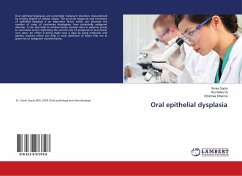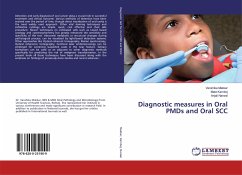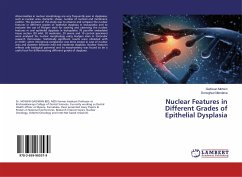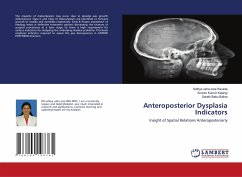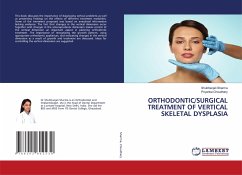
Intracellular Apoptotic signaling molecules in oral dysplasia and SCC
Versandkostenfrei!
Versandfertig in 6-10 Tagen
41,99 €
inkl. MwSt.

PAYBACK Punkte
21 °P sammeln!
Apoptosis has been recognized as a key mechanism of tumor cell elimination and in cancer, it has been recently assumed even with more importance with the realization that it may be the possible the principle mechanism by which irradiation and chemotherapy kill cancer cells. This study was to explore the role of apoptosis in dysplasia and squamous cell carcinoma of oral mucosa by detecting apoptotic influencing protein, procaspase-3 and cell death pathway genes, Fas and Fas ligand and antiapoptotic transcriptional factor, NFkB with c-myc oncogen.Forty-two selected cases were included in this re...
Apoptosis has been recognized as a key mechanism of tumor cell elimination and in cancer, it has been recently assumed even with more importance with the realization that it may be the possible the principle mechanism by which irradiation and chemotherapy kill cancer cells. This study was to explore the role of apoptosis in dysplasia and squamous cell carcinoma of oral mucosa by detecting apoptotic influencing protein, procaspase-3 and cell death pathway genes, Fas and Fas ligand and antiapoptotic transcriptional factor, NFkB with c-myc oncogen.Forty-two selected cases were included in this retrospective study, twelve cases of oral dysplasia and thirty cases of oral squamus cell carcinoma. The expression of procaspase-3 protein was detected by immunohistochemistry and Fas, Fas ligand, NFkB and c-myc genes were detected by In situ hybridization.This study concluded that failure of apoptosis together with activation of c-myc oncogen and antiapoptotic factor (NFkB) might play an important role in malignant transformation and promote oral tumorigenesis.



